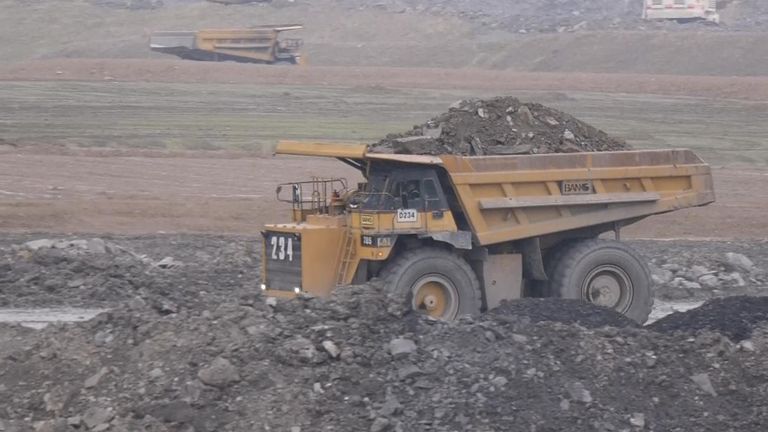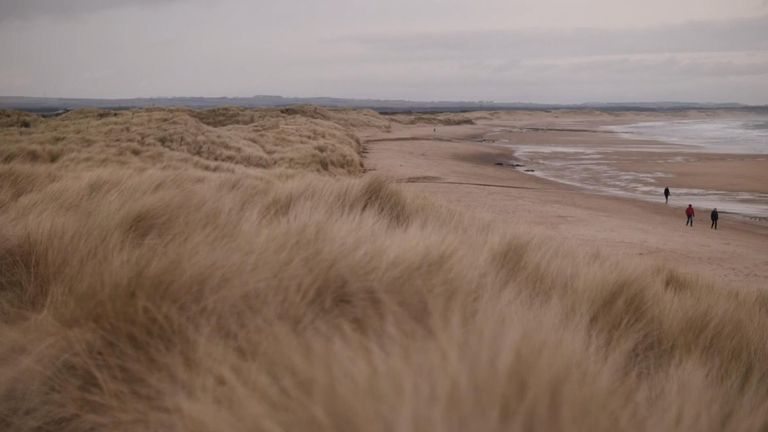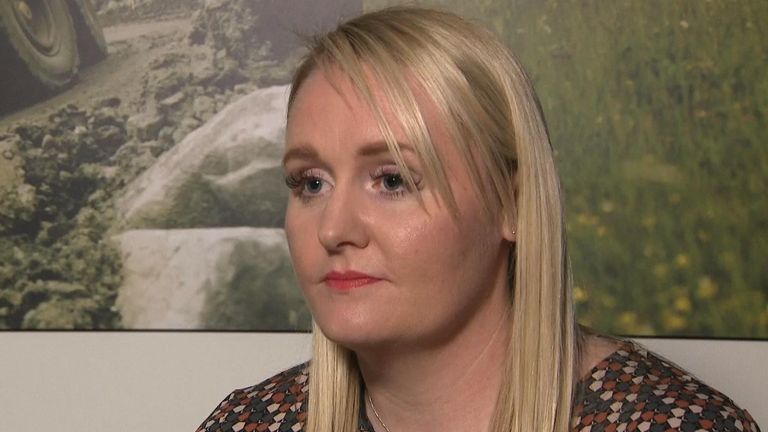Government 'failing to show leadership' over plans for new coal mines
Some residents in Northumberland are against plans to open a new site near Druridge Bay, which has a rich history of coal mining.
Saturday 22 February 2020 00:48, UK
Environmentalists and scientists have told Sky News that the government is failing to show leadership over the opening of new coal mines.
Coal is one of the most carbon intensive fossil fuels you can burn.
But even after declaring a climate emergency, the government has no policy on how much coal should be extracted in the UK and whether new mines should be allowed to open.
We have been examining a long-standing application to open a new mine within a kilometre of the dunes of Druridge Bay in Northumberland. Local residents say the idea was first mooted back in 2013.
Druridge Bay is part of a region with a rich history of coal mining, but campaigner Lynne Tate says mining should be consigned to history.
She said: "It's about climate change now. I've got children and grandchildren in this area and I don't want to see them affected any more than we have been at the moment.
"We need to get our emissions down and if we don't do that, what future have our children and grandchildren got."
Britain does still need coal, but not nearly as much as it used to.
During the first three quarters of 2019, less than 2% of Britain's electricity was generated using it.
The government plans to phase out coal-fired power stations by 2025.
But there is still a domestic demand for the fossil fuel in industries such as steel, cement and even heritage railways.
In 2018, Britain imported just over 10 million tonnes of coal which accounted for 80% of the country's coal usage.
Nearly half came from Russia. It is also imported from America, Australia and Columbia.
Banks Mining, which wants to open the new Northumberland mine, argues it is better to use local coal than bring it from overseas.
But the company is refusing to guarantee it will not export any abroad.
Jeannie Raine, community relations manager at Banks Mining, said: "We agree that the government are moving towards carbon neutral by 2050, and we're part of that transition, but at this present time and for the next few years at least, we are looking at a need of five to six million tonnes of coal in the UK.
"And if that need is met by UK businesses, then that's far better for the environment than importing it from abroad."
But that is disputed by Professor Phil Taylor, who was the chief energy expert witness at a public inquiry.
Evidence was presented to the inquiry that emissions created by transportation are insignificant compared to the emissions from burning coal.
Professor Taylor argues that coal from existing global coal mines should be used first as those are "committed emissions".
He said: "If we want to make cement and steel we can do that with coal from other places. We can get that from coal mines that have already opened."
He added: "If we don't open Druridge bay coal mine then we're not adding additional emissions from coal. So at some point, you've got to stop opening coal mines. Keep it in the ground.
"Every time we refuse to open a coal mine, global CO2 emissions are kept under control. Every time we open one global CO2 emissions increase - that's the basic fundamental truth about this.
"The government, if it really is declaring a climate emergency and really wants to hit net zero by 2050, have to say no to a commercial project that is in direct conflict with dealing with climate change."









